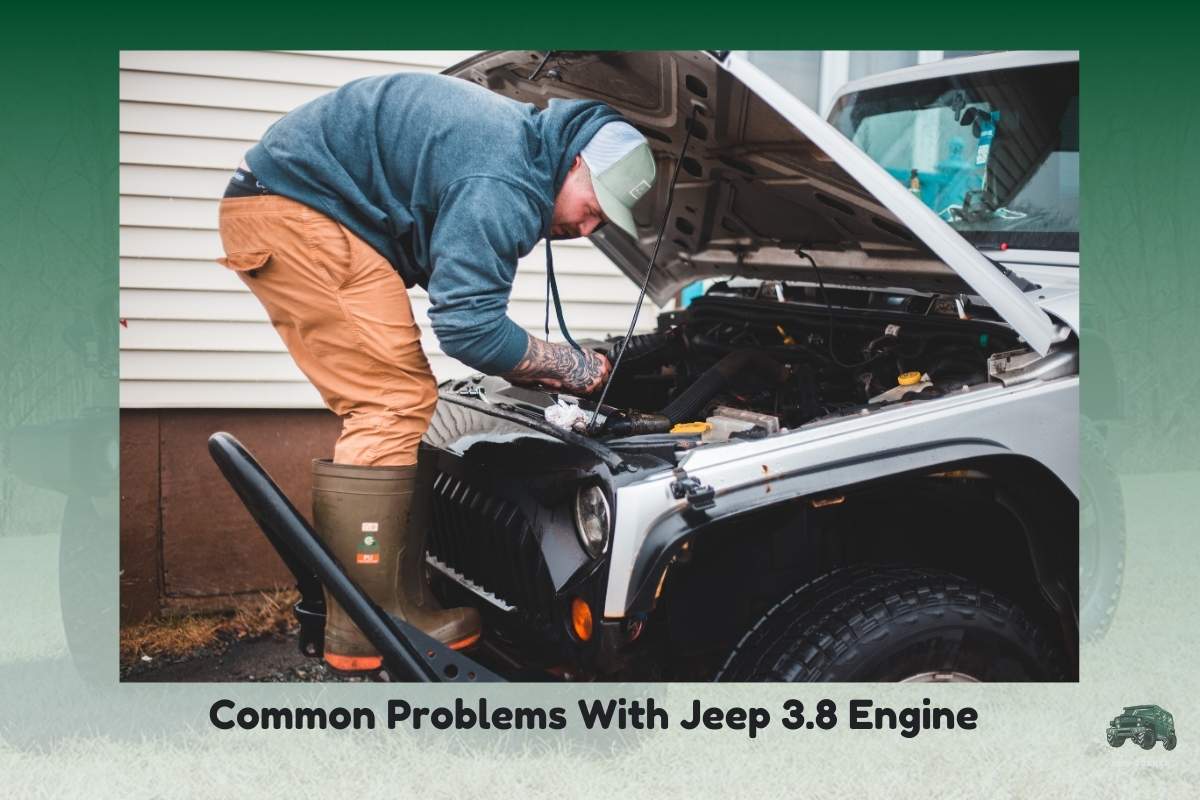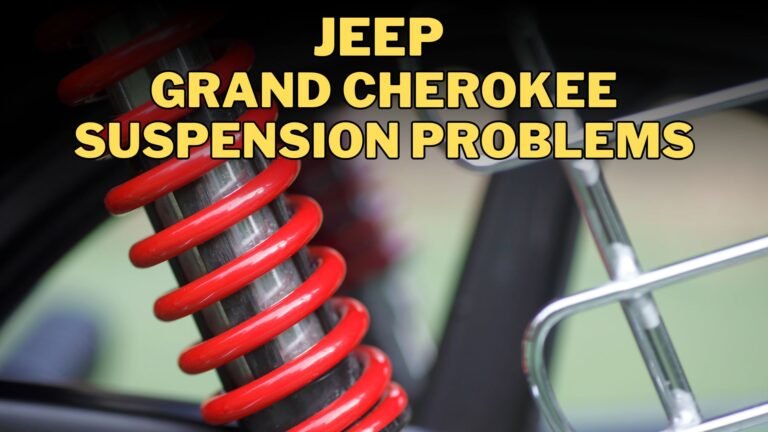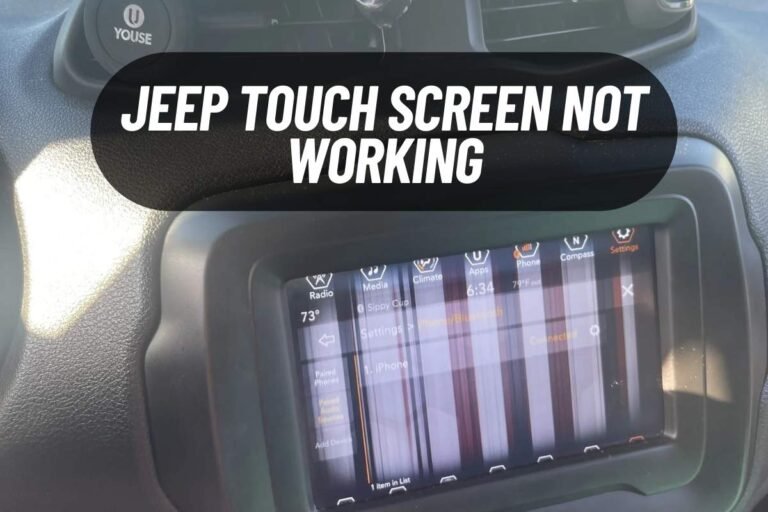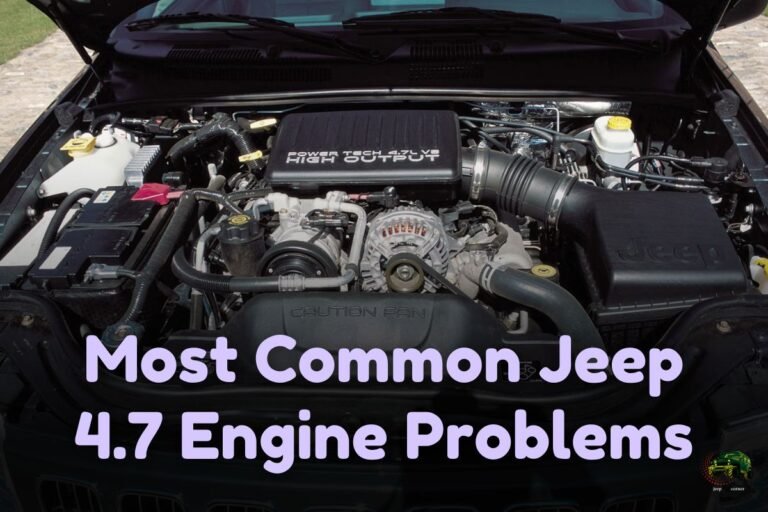Common Problems With Jeep 3.8 Engine
Naturally aspirated 3.8L V6 engine on Jeep vehicles, especially Jeep Wrangler, faces a lot of problems after driving for a while. This is quite annoying for a rugged off-roader like the Wrangler. So, what are the common problems with Jeep 3.8 engine, and how to solve them?
The most common problems with Jeep 3.8 engine are engine knocking, intake manifold leak, low fuel economy, rust buildup, and engine breakdown. Some of these problems can be kept at bay with regular maintenance, but others are inevitable.
Let’s give you a detailed overview of these problems and their possible solutions.
Table of Contents
Jeep 3.8L V6 Engine Specifications
Before we get into the detail, you should have an idea of the engine specs. The engine has a total displacement of 3,778 cc, which gives a power output of more than 200 HP. It has six cylinders, and they are inclined in a V shape.
A 4-speed automatic transmission system is paired with the engine. It produces 315Nm of torque to make the Jeep a powerhouse while offroading. The 3.8L engine was used in Jeep Wranglers made from 2007 to 2011.
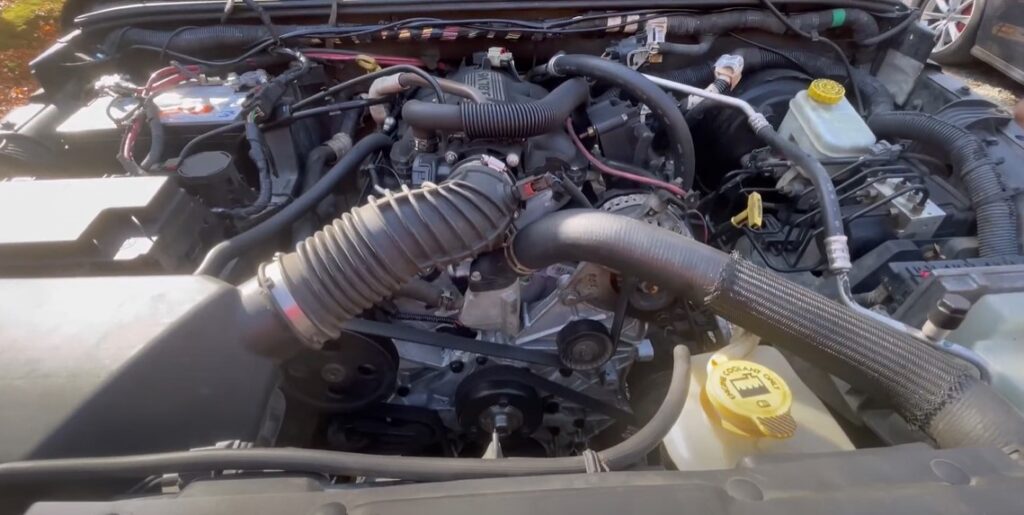
Common Problems With Jeep 3.8 Engine
The following issues are commonly observed in Jeep 3.8 engines. See if they match yours and find the solutions.
Engine knocking or bad idling
Knocking is that constant grumbling sound from the engine when you start the vehicle and keep it idle. The problem starts appearing after driving the car for a few thousand miles. If you don’t run the engine for quite a while, this issue might appear quickly. It can be caused by a faulty oil filter in the engine.
Solution
Replacing the oil filter can help to resolve the issue in many cases. If you don’t have enough expertise, you should not change the filter on your own. Take the car to a certified mechanic and get the filter changed.
Leak in the intake manifold
Streams of liquid in the engine bay or on your garage floor are very common if you use Jeep 3.8 engine. In most cases, the problem is with the intake manifold gasket.
The gasket isn’t that durable and starts creaking after 50K or 60K miles. These creaks then develop into leaks, and the coolant liquid gets leaked from the engine.
Solution
Fixing the fault gasket isn’t a good solution. You must replace the gasket with a new one to get rid of leaks. Take the car to the mechanic to change the gasket.
Low fuel economy
Jeep 3.8 engine is not that oil-hungry until the engine becomes about 100,000 miles old. Some engines might start consuming higher oil than usual, and you can also get burning smells from the engine. So the problem can be caused by worn valve seals or piston rings.
Solution
Using high-viscosity oils can be a solution to this problem. And you should always keep the oil to a certain level to prevent the engine from burning. Valve seals and piston rings should also be replaced if necessary.
Rust buildup
Rust is a common problem in Jeep 3.8 engines. The water vapor produced inside the engine bay comes in contact with bare metal parts, which is the main reason behind rust buildup in the engine.
Besides, there is no notable rust protection in metal parts used in the 3.8 engine. Hence, oil flow channels in the engine block can be blocked due to rust.
Solution
Checking the engine bay regularly for any signs of rust is the first step. If the rust buildup is at the primary stage, you should remove the rust using chemical cleaners. Then apply anti-rust chemicals to crucial parts of the engine block to prevent them from blocking.
Overheating
Jeep 3.8 engines can overheat pretty quickly, especially when the car is driven for more than 100,000 miles. Thus, overheating can be caused by several reasons.
Leakage in the cooling system, radiator, improper burning of oils, etc., can cause the Jeep engine to overheat. You will get a burning smell, which is quite unusual.
Solution
Check oil flow channels and the radiator for leaks. You should also determine whether the oil is burning properly. Also, make sure the fluid level is always up to the mark.
Engine failure
This is the biggest problem with Jeep 3.8 engine. After driving the car for about 100,000 miles, Jeep 3.8 engines start showing various issues.
Sometimes, these problems are minor and can be repaired, but in some cases, you must replace the whole engine to get the car up and running. The problems may appear quicker if you don’t maintain the car regularly.
Solution
There is no possible solution to this problem. Jeep 3.8 engines will start to fail after a specific mileage. You can just increase the service life of the engine to a small extent by maintaining it regularly.
The Jeep 3.8L V6 engine may have some common problems during use, so it is important to regularly maintain and check the vehicle’s engine.
FAQs
Check answers to some commonly asked questions about Jeep 3.8 engines.
How long do Jeep 3.8 engines last?
Jeep 3.8 engines are supposed to run for up to 200,000 miles, but that doesn’t always happen. Most engines start failing after 100,000 miles.
Is the Jeep 3.8 engine reliable?
Although most Jeep engines are reliable, the same doesn’t apply to the 3.8L V6 engine. However, it is still somewhat reliable up to a hundred thousand miles.
Is the horsepower and torque of the 3.8 engine enough?
The horsepower and torque of the 3.8 engine aren’t that high, considering the displacement.
Final Thoughts
Jeep has made a place in the heart of offroaders due to its rugged build quality and superior offroading capability. But the 3.8L V6 engine wasn’t a great success as it had a lot of common issues.
Now that you know about the common problems with the Jeep 3.8 engine and their solutions, it will be easier for you to check out for signs to take necessary actions quicker.

